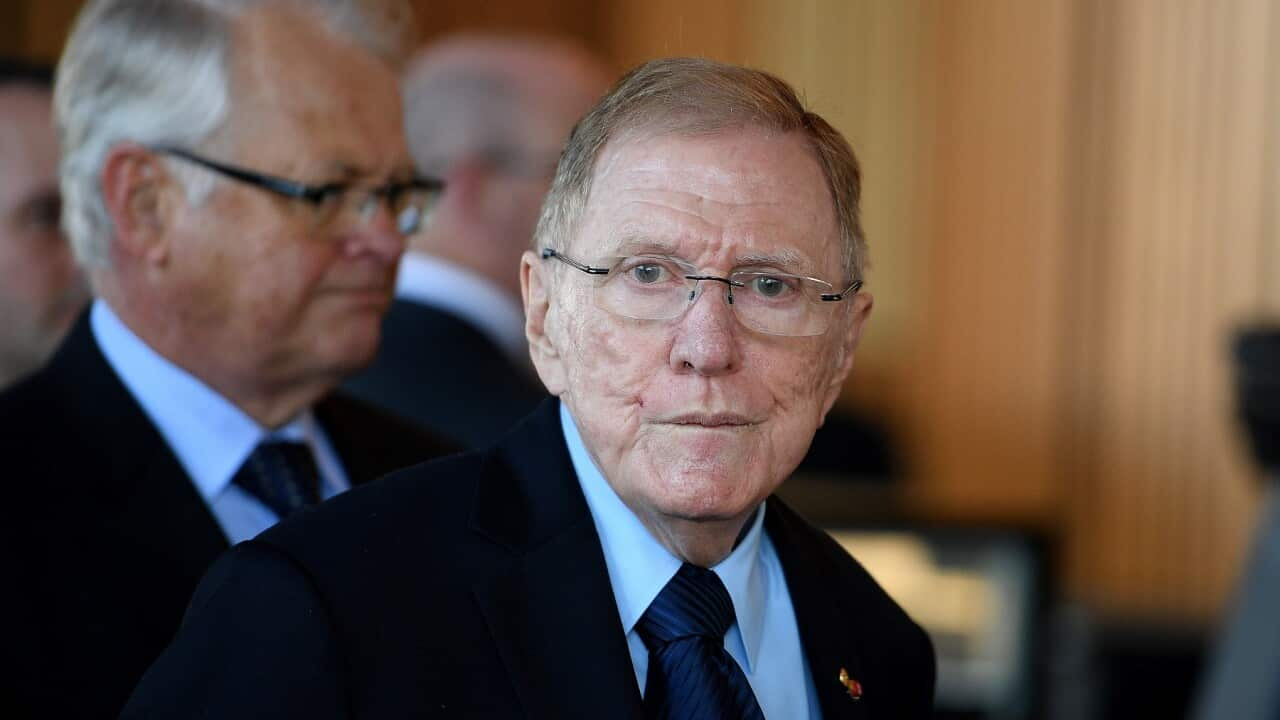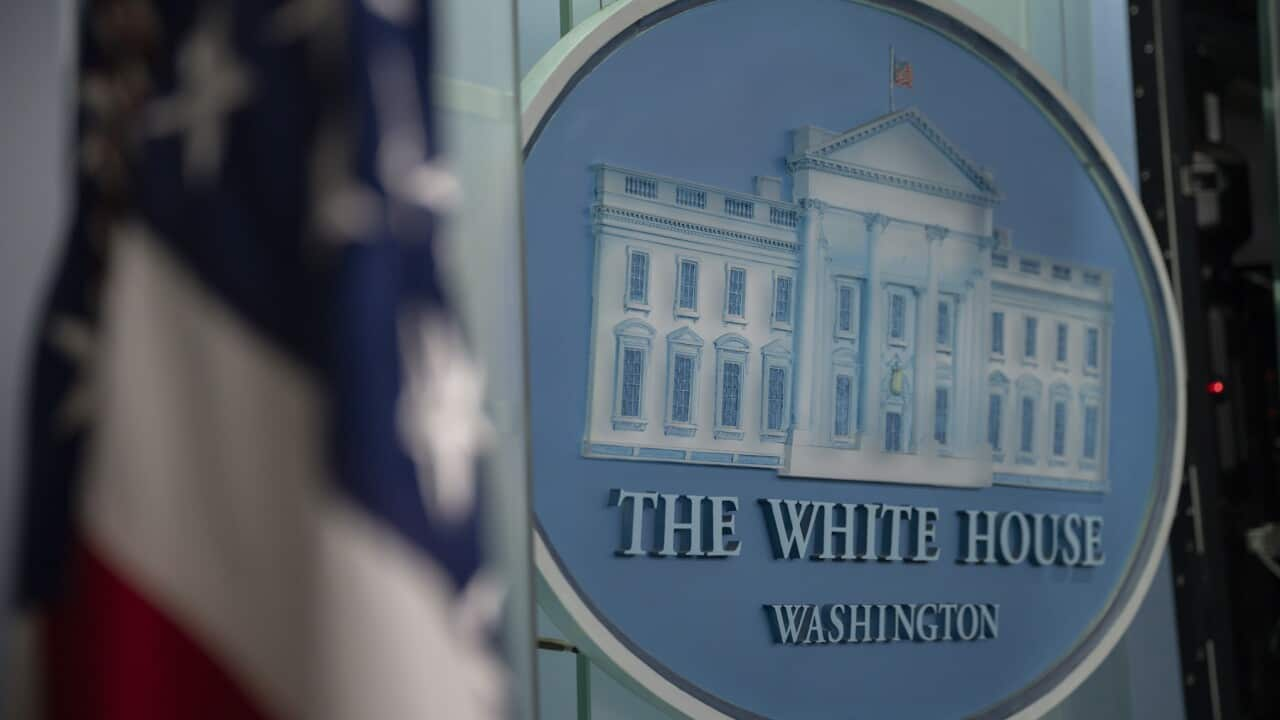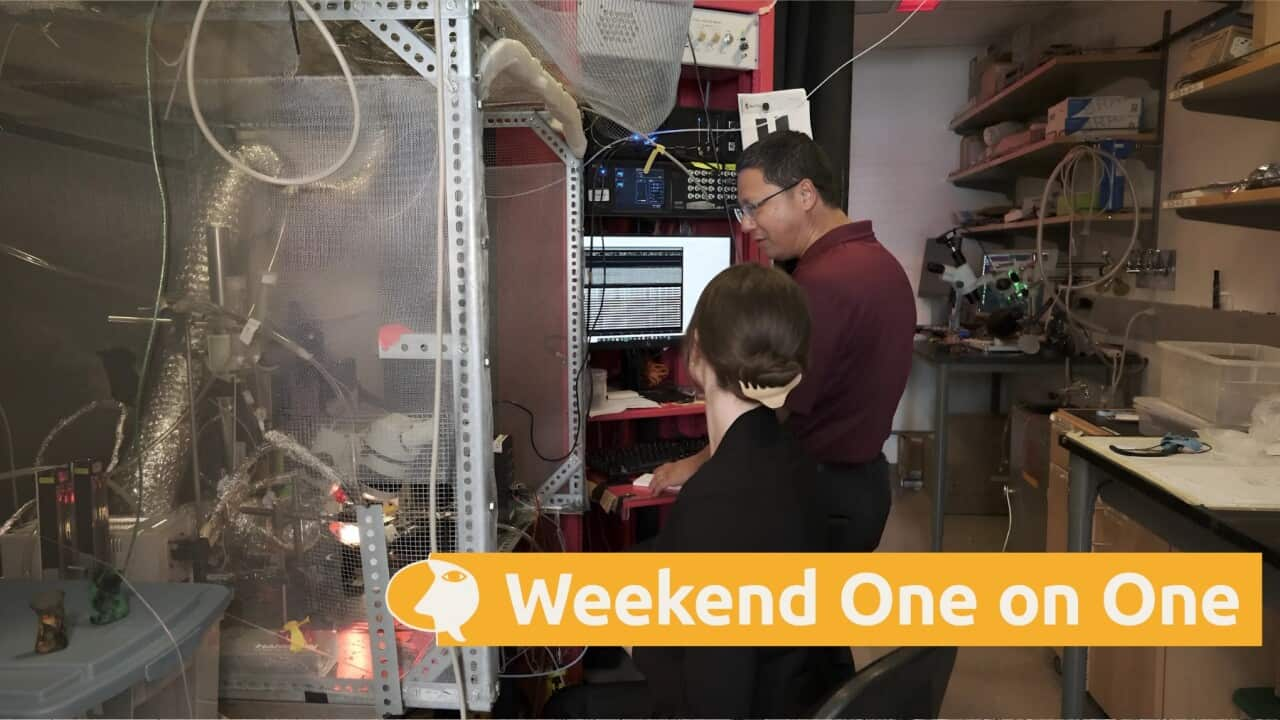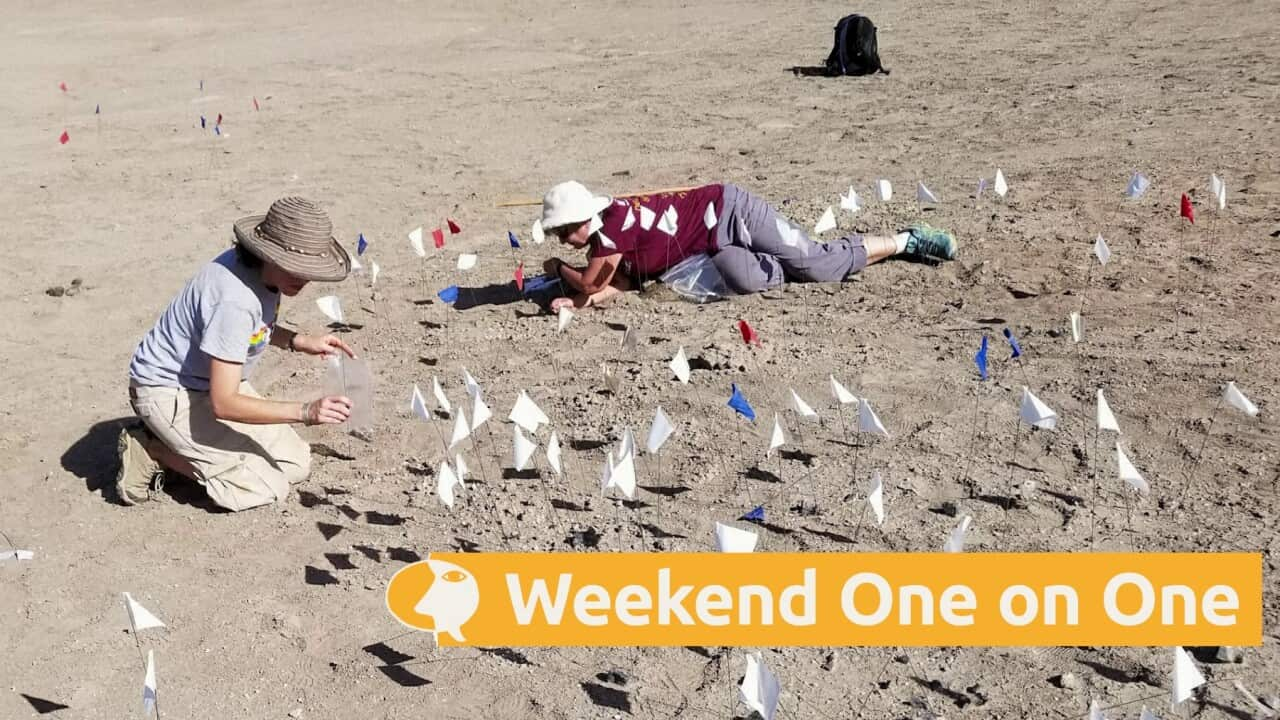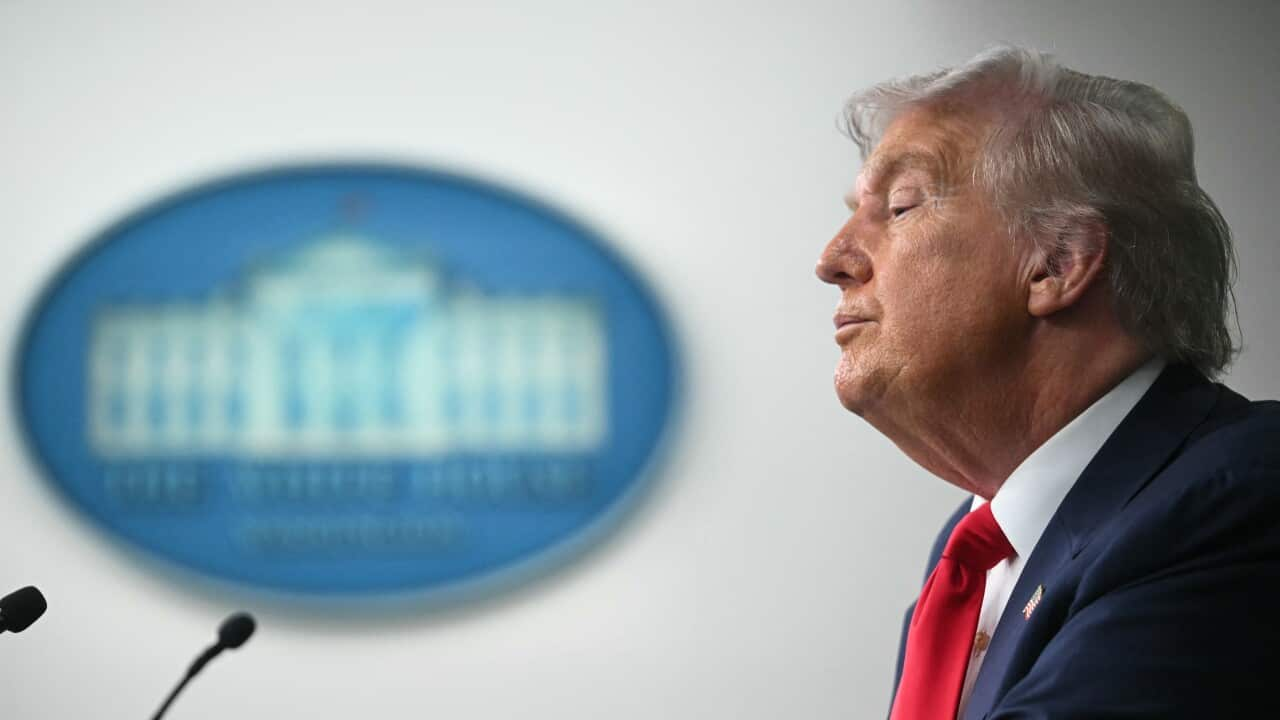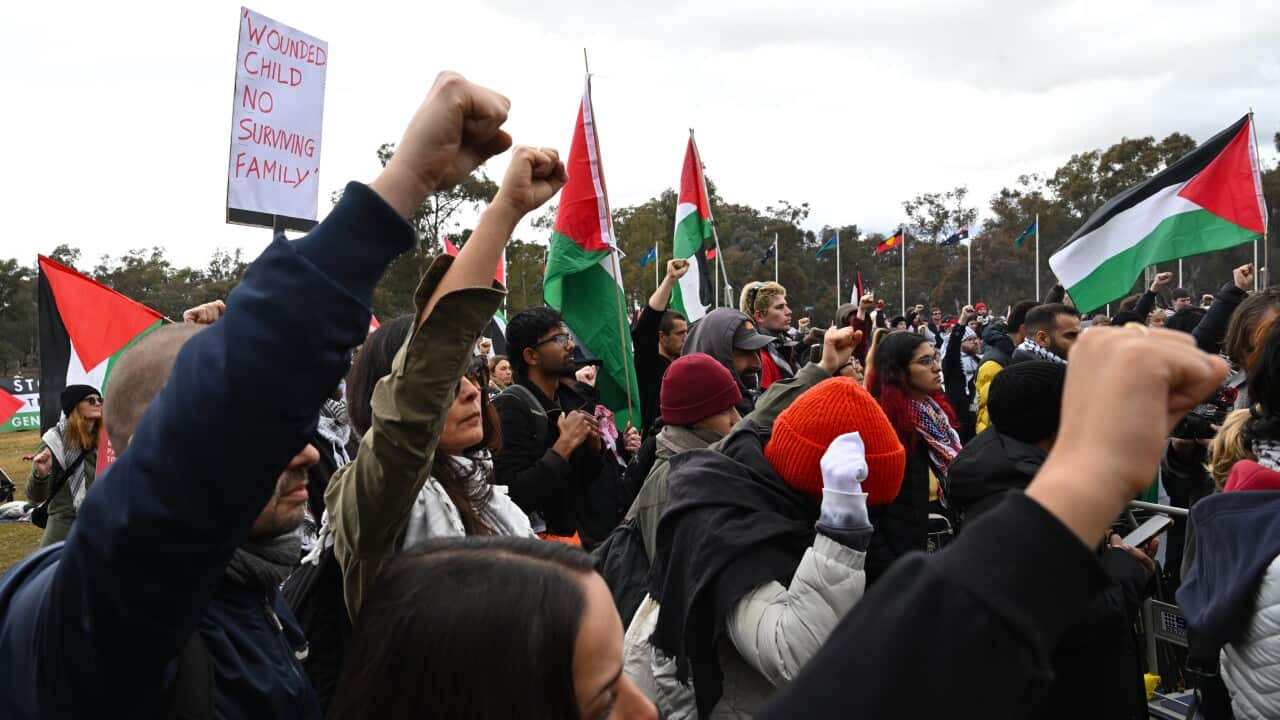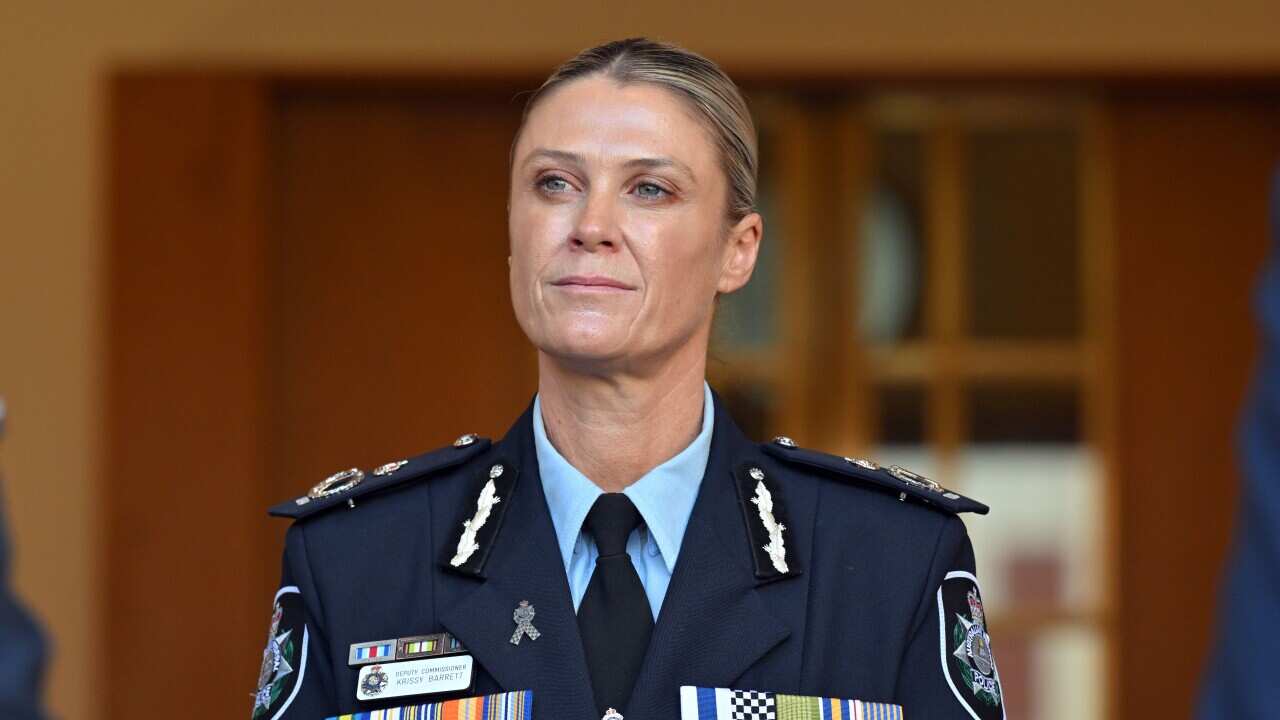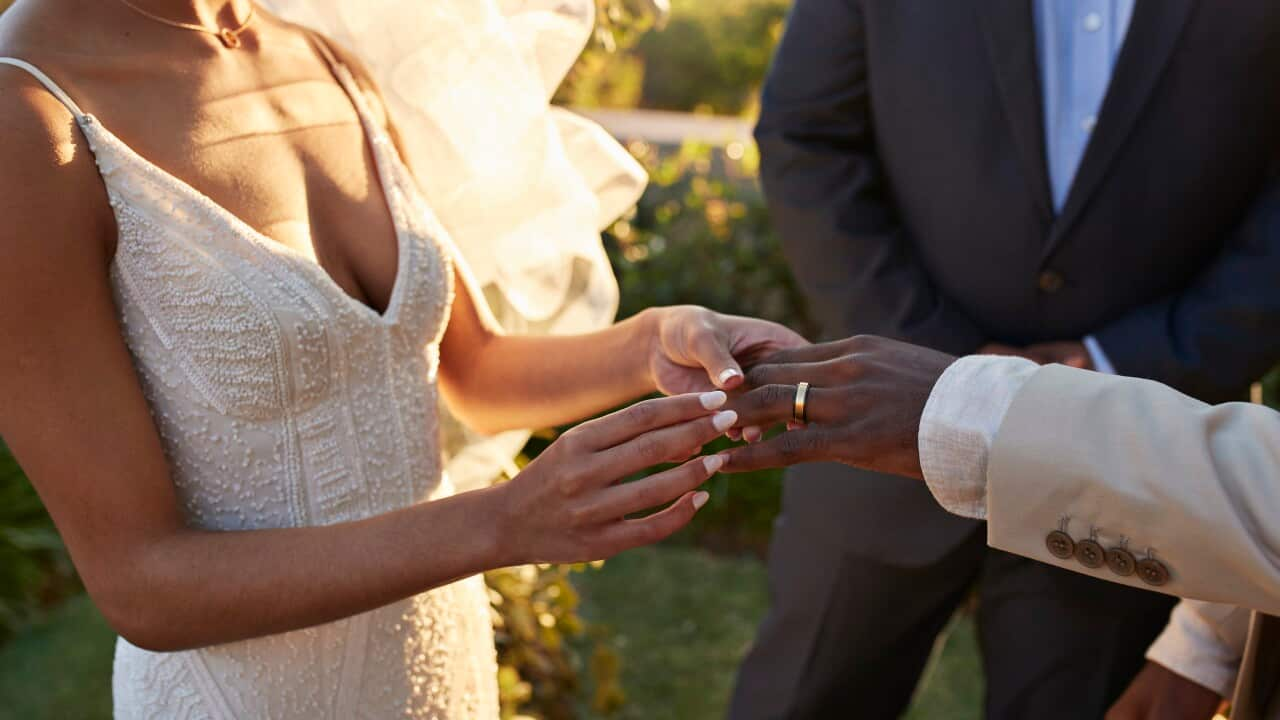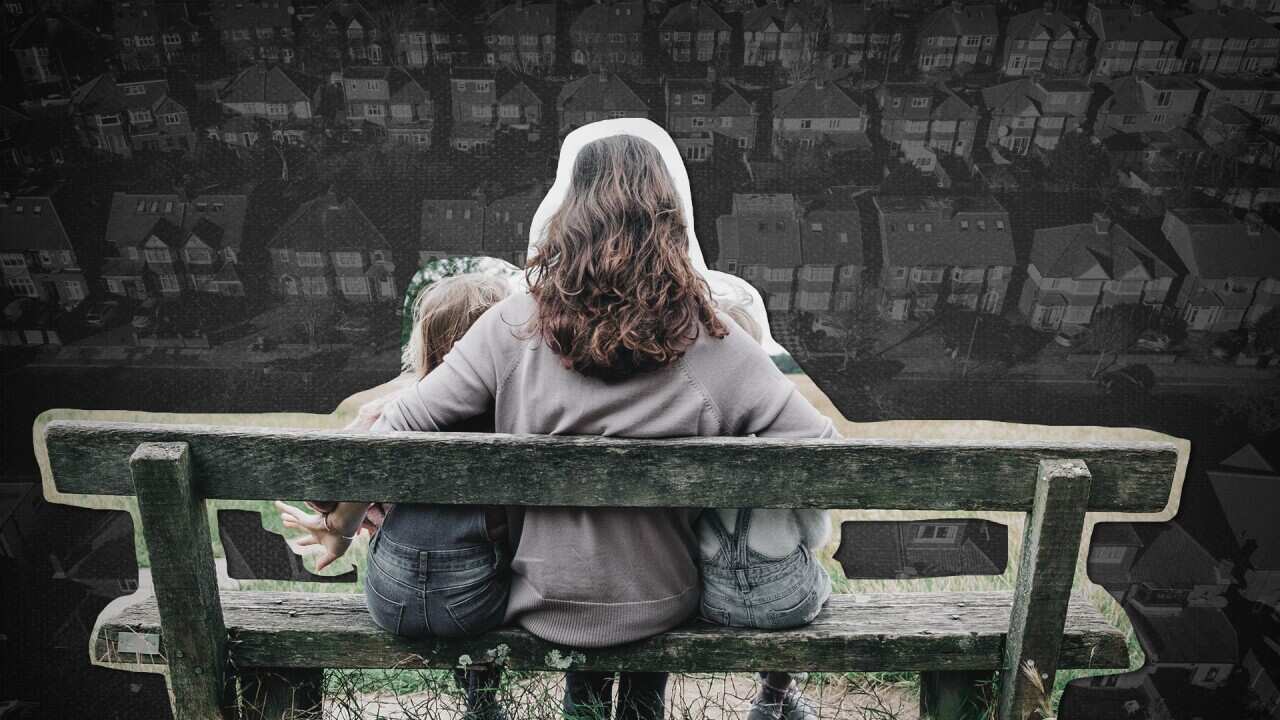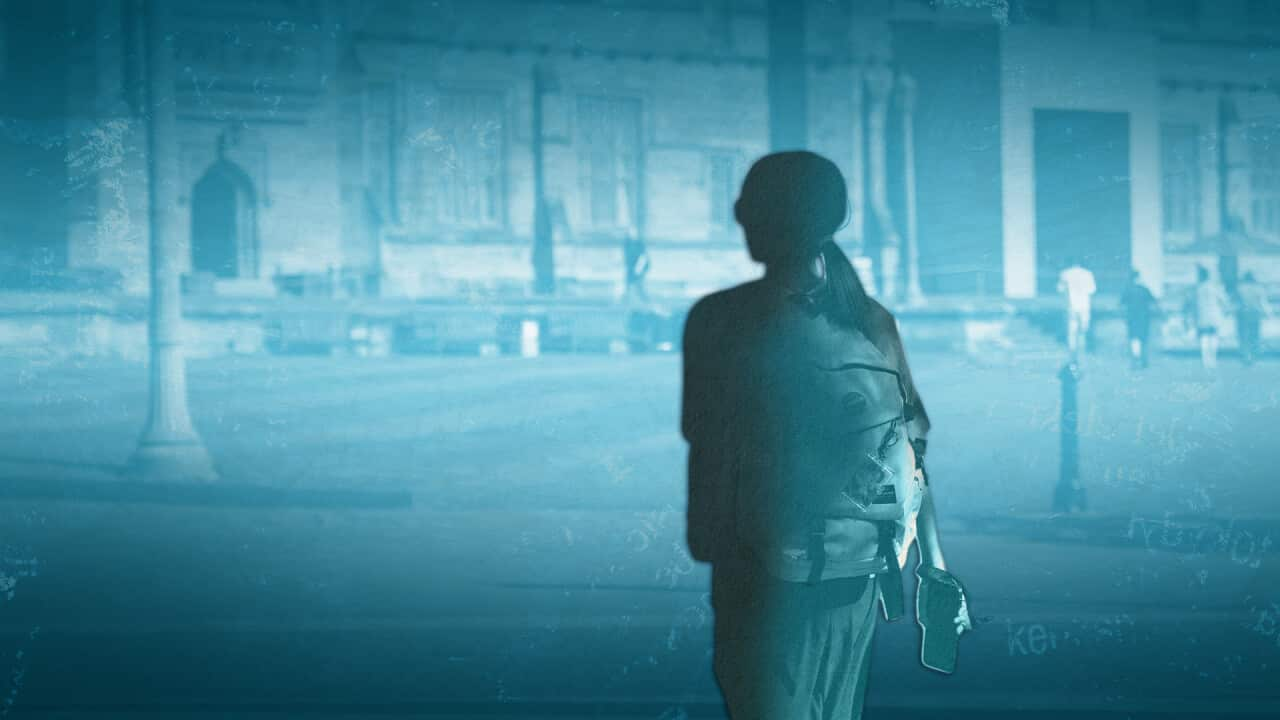"There were no openly LGBTIQ people in federal parliament or in public life. It was an oppressive law which was enforced. And every week or so, on the front page of the evening newspapers, were stories about LGBT people who had been entrapped by police and humiliated and denounced. And by and large, most members of the public went along with that and they thought gay people were an abomination."
Former High Court justice Michael Kirby says if he had come out as gay as young man in the 1970s, there's no chance he would have had a legal career.
The high-profile human rights lawyer says life in Australia was oppressive before the decriminalisation of homosexuality .
STEPHENS: "It's quite clear in scriptures that homosexuality is against the law of God."
REPORTER: "Ms Stephens said she's seen the damage that homosexuality can do. It ruined her brother."
STEPHENS: "He now lives in pigsty conditions!"
In New South Wales, where Kirby has lived most of his life, laws strictly outlawing sexual contact between people of the same sex weren't abolished until 1984.
"The thing that was peculiar about gay people was that there were actual criminal laws and therefore if you made any indication that you were gay, you were subjecting yourself to attack on the grounds of illegality. And I was like Nelson Mandela in this respect. I didn't comply. He didn't comply with the pass law and carry around a pass which had been imposed on the citizens in South Africa. And I didn't comply after a while with the anti-gay laws."
Kirby realised his same-sex attraction when he was still in primary school.
But he didn't publicly acknowledge it until 1999.
In that year's edition of Who's Who Magazine, Kirby listed the letter 'p', for partner, beside his partner Johan van Vloten's name.
It was a small but significant act, marking Kirby's first public acknowledgement of his sexuality.
Turning 86 in March, Kirby still works as a lawyer and an advocate.
Sharing reflections on his six-decade legal career, he recalls witnessing and at times playing a starring role in the progress of equality and social reform.
"It was a kind of signature theme that Australia would not really make progress on a lot of social issues and a lot of backward approaches to women's rights, to Indigenous First Nations people rights, the rights of people of colour in an era of white Australia. All of these things were really with LGBT rights blocked because there was somewhat conservative government. And it was when that government fell on the 2nd of December, 1972, that with the advent of the Whitlam labor government and the creation of the Law Reform Commission and other bodies, a lot of change started to happen."
It’s been more than 25 years since homosexuality was decriminalised in Tasmania, the holdout Australian state.
But Kirby says he remains concerned about attacks on the rights of transgender people.
"My own experience in dealing with the LGBTIQ communities within the queer community generally, is that trans people have a very difficult life. Most gay people nowadays can get by being open. Gays and lesbians are now well-known and recognised in society. And that recognition and acceptance has led to quite a significant change in attitudes. But the struggle isn't over and it's the trans people who are at the moment really on the front line."
Kirby says his advice to younger Australians would always be that things get better.
Initially expressing opposition to Australia's postal vote on marriage equality in 2017, Kirby argued that it devalued the community to have the public vote on their rights.
But when it was time to vote, he did vote 'yes' and in 2019 decided to marry his partner Johan on their 50th anniversary as a couple.
"The thing I've learned over the 55 years that we've been together, 56 years, is that you have to have one partner who gives in. In any relationship there are battles and there are disagreements and sometimes very strong disagreements. But if you want the thing to work, you've got to have one of the partners who will always give in because they look at the broader picture and they conclude that winning on a particular little issue is less important than continuing a loving relationship."
KL Joy says their life completely changed seven years ago, during a conversation with one of their sibling's children.
The 55-year-old is an archivist, historian, person with disabilities and student living in Ballarat, Victoria.
At 47, they became the first Australian to enter the International Miss Bootblack competition: a competition that celebrates queer leather culture and the practice of bootblacking.
Bootblacking, Joy says, is shoe-shining with soul.
And it was here that Joy says they started to have some complicated feelings around their gender identity.
"So I was 47. I had a conversation with one of my niblings [*gender neutral term for niece/nephew] and they said the words gender nonconforming. And I was like, Ooh, tell me about that, what's that? It was like a crucible, it cracked me open to change me in ways that I couldn't have expected at that time."
Growing up in the 80s, Joy says they'd always been drawn to androgynous figures like David Bowie and Annie Lennox.
"I was like, my aesthetic doesn't support that, but that's who I am. How do I portray that when I've got boobs and a butt? You know, I can't be that skinny androgynous look that says, is that man or woman? Is that male or female? When you walk down the street and you go, huh, I don't know. But that was what I wanted. That was what I needed. That was my gender expression."
Seeking hormone-replacement treatment for menopause, Joy opted to take a dose of testosterone.
"It's actually moved me into a really good state of mind. As a young person I don't know that I would've had the guts to do this."
Now a parent, Joy has raised their 18 year old son as an activist.
In 2004, when Australia voted to change the Marriage Act and reinforce the definition of marriage as being between man and woman, Joy started campaigning.
Then, in 2017, Joy says campaigning started up again.
This time, it was ahead of Australia's postal vote for marriage equality.
"I call it the hundred days of hell, the plebiscite. We campaigned hard around that. We got a lot of flack around that. I put a poster up in the back of my car that I had at a rally from a pride march many moons ago that said, marriage equality now. And I would be standing at the car park in, say, Melton. People would be walking towards me looking at the sign, looking at me, looking at the sign. And I didn't know if I had to fight or flight."
Australia voted yes, and Ballarat, where Joy was campaigning and living, returned a 70.1 per cent Yes vote.
Upon hearing the news, Joy burst into tears.
"There was the joy, but it was also the anger, getting really emotional about this. The anger at having to go through something like that, the whole country debate and vote on whether or not we were valid citizens."
Despite the toll of campaigning, Joy says they'll always be proud of how far things have come.
"The conversations are so natural that they'll just talk about their girlfriend or their boyfriend or whatever. And there's no expectation of like, I'm coming out. My experience at the same age, I'd be walking down the street with my girlfriend and one of her lecturers was coming towards us on the street, and she dropped my hand. So at 21, that was my experience, at 21, they're sitting there talking to a complete stranger about their partnership. And it's normalised."
Ross Rahman says a 30-year internal struggle over his sexuality is just starting to ease.
The 48-year-old finance professional was born in Singapore and raised as a Muslim.
"When all my peers and my fellow friends in schools were pairing off, the boy-girl, I was not interested. So I guess that was slightly different because I was a bit confused. I was not interested in boys my age. So that was the confusing bit because I assume I'm not straight, but if I'm not interested in other boys, then if I'm not gay and I'm not straight, then what am I?"
It wasn't until he came to Australia to study in 1999 that he started to come to terms with the fact he is gay.
An international student at Canberra's Australian National University, Rahman says this was a good starting point.
"I guess it was a blessing being in Canberra because I guess it's like a kiddie pool of discovering my sexuality. Because it's a bit protected. The whole community is slightly different. I came to Sydney and Sydney was full on for a young gay man. But Canberra was a good starting point."
Moving to Sydney after he graduated, Rahman says this was when his struggle to balance his sexuality and Muslim faith began.
"A lot of people I spoke to have always chosen one or the other. I have not met, I rarely met someone who was able to balance both."
Rahman says he experienced a lot of guilt over being gay and felt the only path he had was to face condemnation.
"I couldn't, something about me was not willing to give up that faith. So I dunno what it is, but I still held on and it was at my own detriment. It was at my own cost."
Cautious of who he allowed into his circle, he created what he calls his chosen family.
Then, around 12 months ago, Rahman says he was feeling very distressed about Israel's war on Gaza.
Wanting to connect with other Muslims who might also be feeling a sense of solidarity with Palestinians, he went online.
"It never occurred to me that there would be an organisation of queer Muslims. I knew there were queer Muslims out there individually. I don't know how to find them, but I never thought there was an organisation. So this led me to do a quick Google search there and lo and behold, there was a queer Muslim group. And I've only joined them almost a year now. So June last year was when I joined them. The big difference I want to emphasise is I've always had my family, my chosen family, but this time around I felt I found my home."
Rahman says meeting other queer Muslims has shifted the rigidity he felt around his faith, opening his eyes on how to navigate two identities.
"Everyone has one basic need. The need is, they want the question answered: 'Do you see me? Do you hear me?' That's all."
